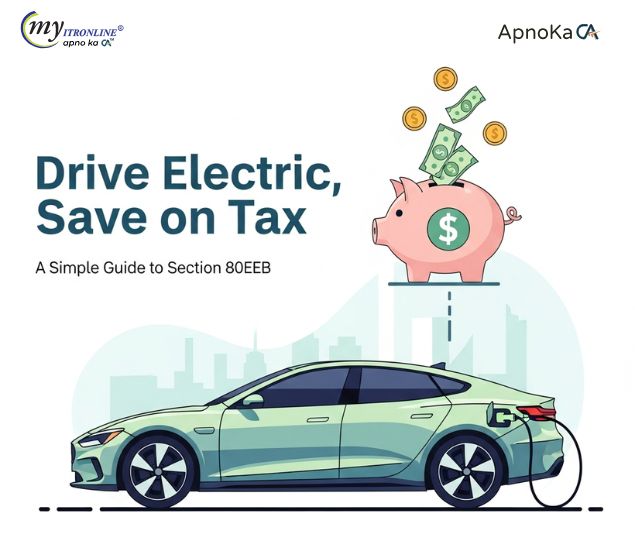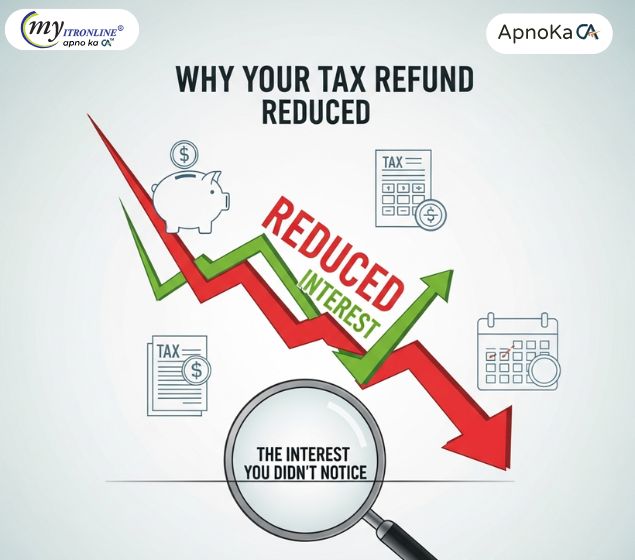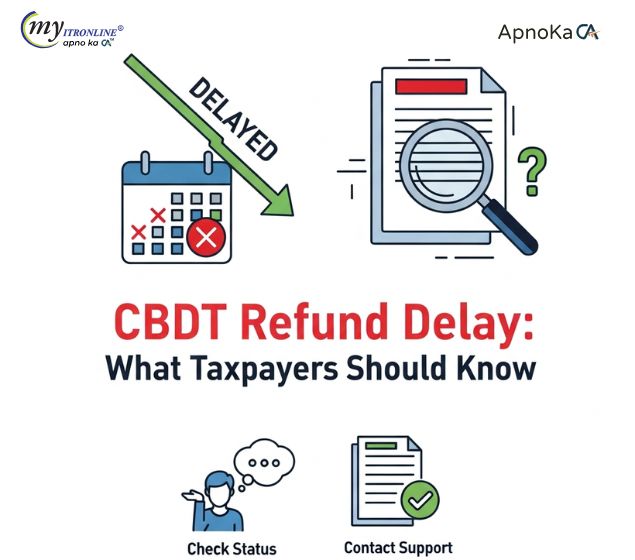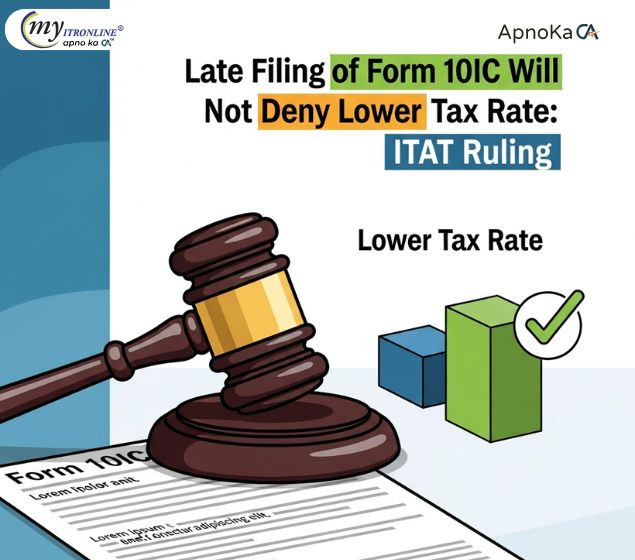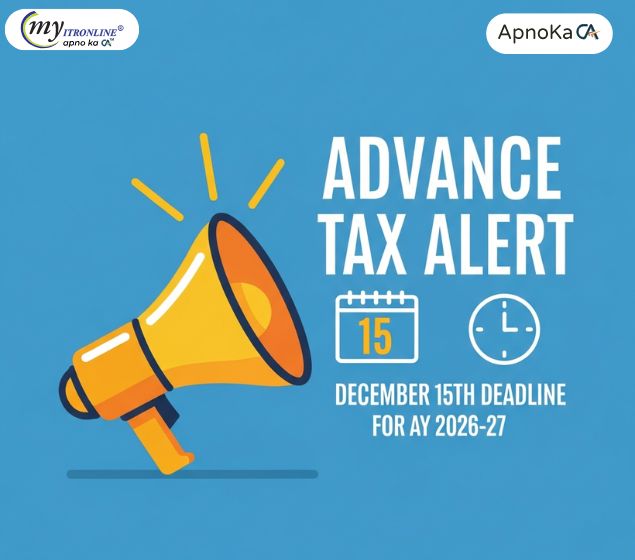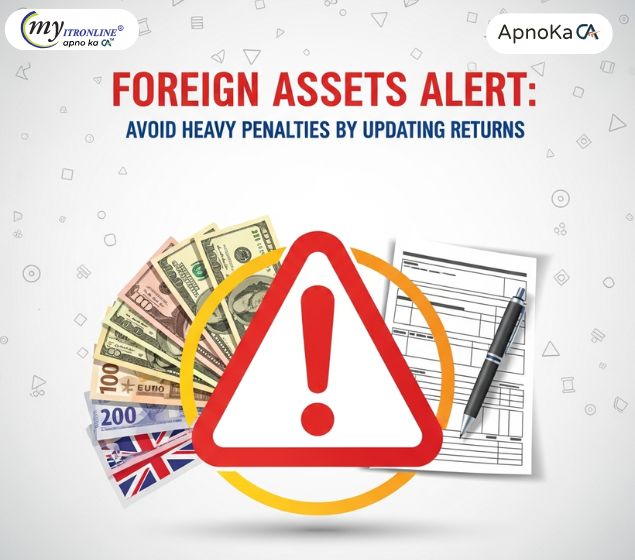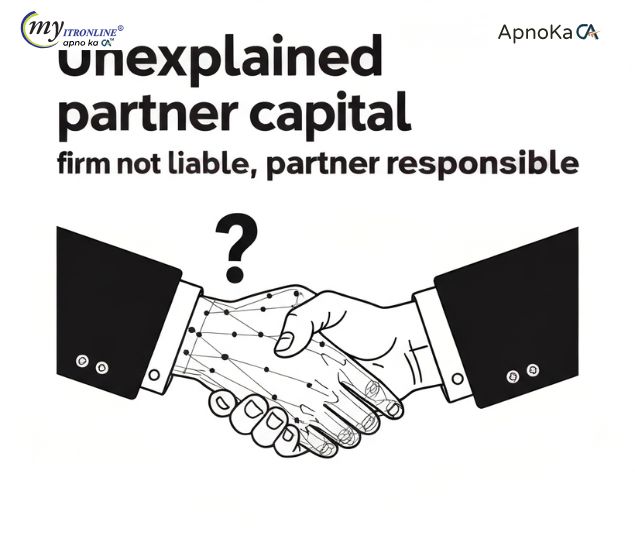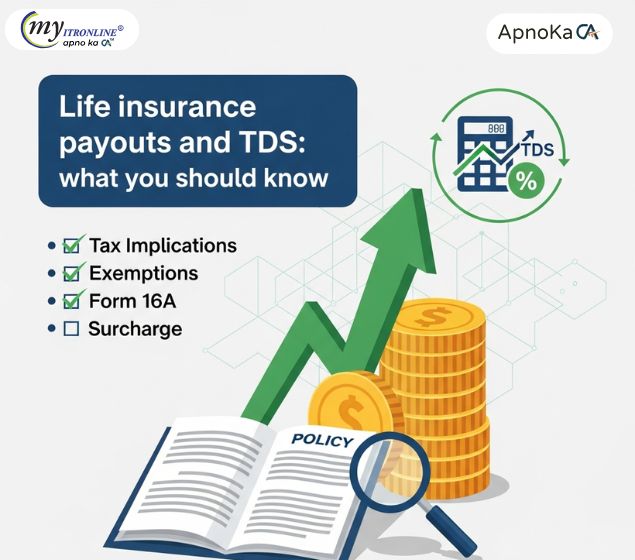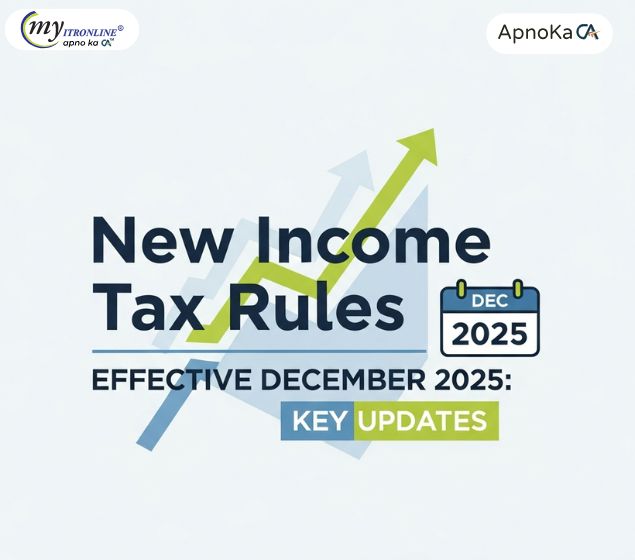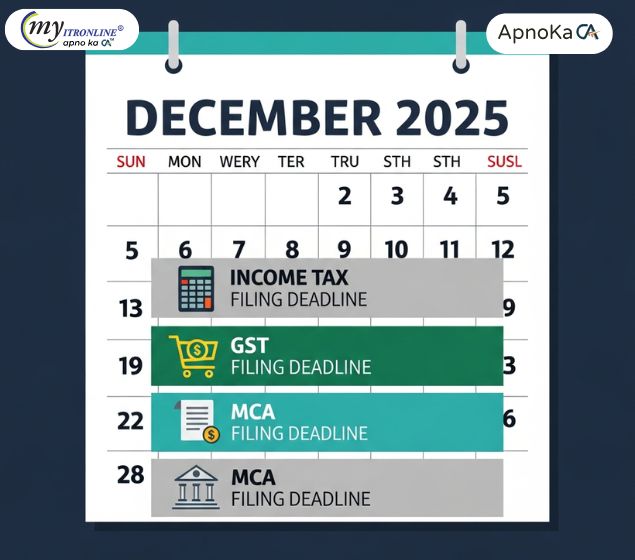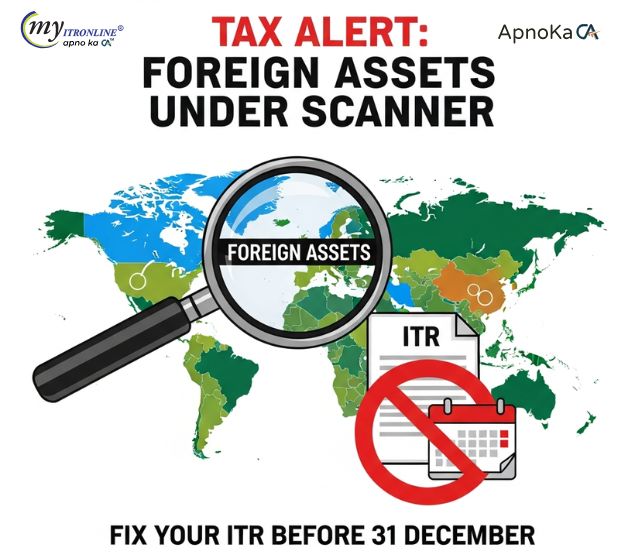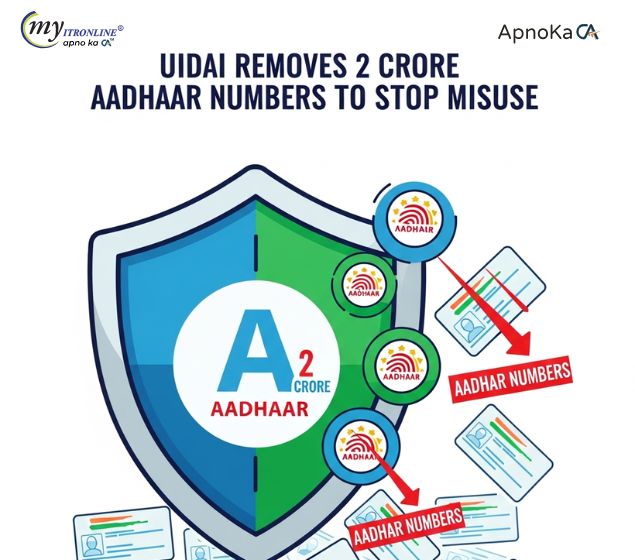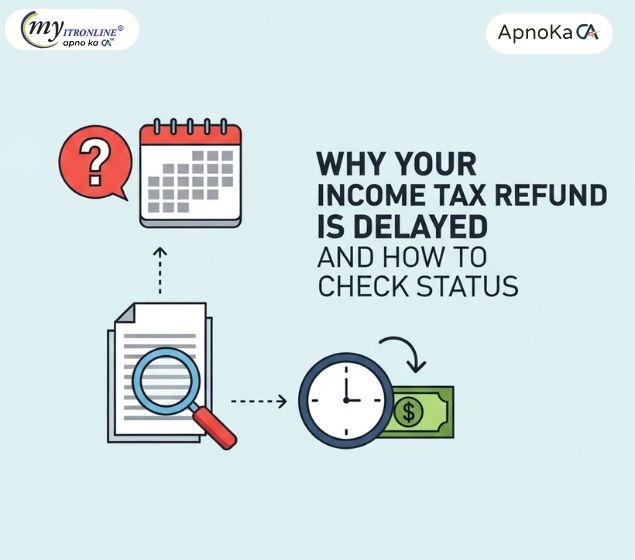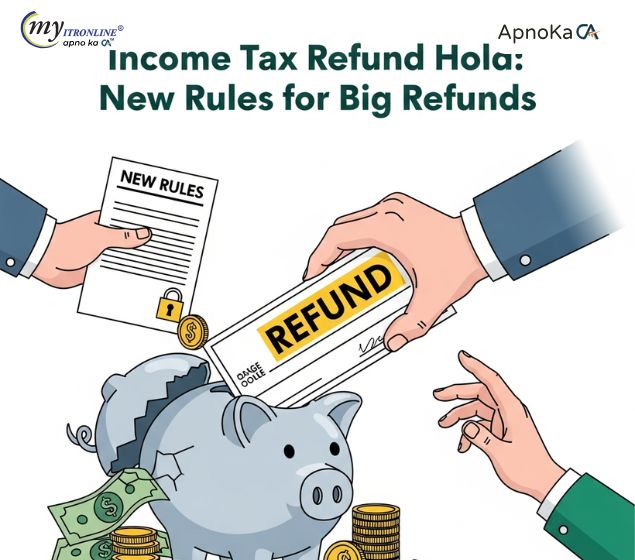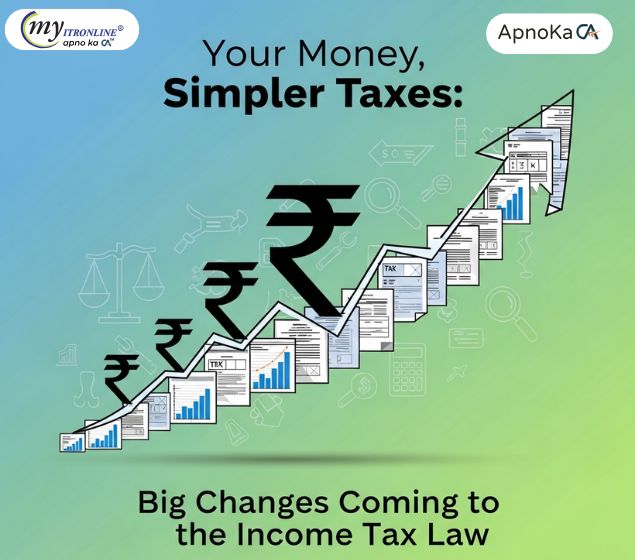Key Modifications and Benefits for Seniors This Tax Season
This blog post provides an essential guide for senior citizens regarding their tax filing for Assessment Year 2025-26 (FY 2024-25). It explains the choice between Old and New tax regimes, highlights key tax benefits like higher exemption limits and specific deductions (80TTB, 80D), details the ITR filing exemption under Section 194P for those aged 75+, clarifies applicable ITR forms, and touches upon important upcoming changes for AY 2026-27, empowering seniors with crucial tax information.

As the tax filing period nears, senior citizens in India should familiarize themselves with the particular income tax regulations and any recent updates pertinent to them for the Assessment Year (AY) 2025-26, aligning with the Financial Year (FY) 2024-25. Although many benefits and regulations for seniors remain unchanged, there are specific details regarding tax regimes, deductions, and filing processes that are important to grasp.
Here’s a detailed overview of the key tax filing elements for senior citizens for AY 2025-26:
Grasping Your Tax Regime Choices
For AY 2025-26, senior citizens, similar to other individual taxpayers, can select between two tax regimes:
The Old Tax Regime: This conventional regime provides various deductions and exemptions (like those under Section 80C, 80D, 80TTB, HRA exemption, etc.) that can assist in lowering taxable income.
The New Tax Regime (Default Regime): Established under Section 115BAC, this regime presents reduced tax rates but offers very few deductions and exemptions. It operates as the default regime, meaning that if you do not consciously opt for the Old Regime when filing your Income Tax Return (ITR), you will be taxed according to the New Regime.
Seniors ought to thoroughly assess their tax liability under both regimes, considering their income and applicable deductions/exemptions, to decide which is more advantageous.
Major Income Tax Advantages for Senior Citizens in AY 2025-26 (Income for FY 2024-25)
Senior citizens still receive numerous specific advantages under the Income Tax Act:
Increased Basic Exemption Threshold (Old Regime): This represents one of the most significant advantages if you choose the Old Regime:
For Senior Citizens (aged 60 years or older but under 80 during any part of FY 2024-25): The basic exemption threshold is ₹3,00,000.
For Super Senior Citizens (aged 80 years or older during any part of FY 2024-25): The basic exemption threshold is ₹5,00,000.
In the New Tax Regime, the basic exemption threshold for all individuals, including senior and super senior citizens, is ₹3,00,000 for AY 2025-26.
Tax Rebate under Section 87A:
Old Regime: If your net taxable income is ₹5 Lakh or less, you qualify for a tax rebate up to ₹12,500, effectively rendering income up to ₹5 Lakh tax-free.
New Regime: For AY 2025-26, if your net taxable income under the New Regime does not surpass ₹7 Lakh, you are eligible for a tax rebate, making income up to ₹7 Lakh effectively tax-free.
Interest Income Deduction (Section 80TTB - Available only in the Old Regime): Resident senior citizens can claim an interest income deduction of up to ₹50,000 from savings accounts, fixed deposits, recurring deposits, and other deposits maintained with banks, cooperative banks, or post offices. This deduction is only accessible if you select the Old Tax Regime. This represents a significant advantage over the deduction allowed for non-seniors under Section 80TTA (limited to interest from savings accounts, up to ₹10,000).
Higher Standard Deduction on Family Pension (New Tax Regime): Senior citizens receiving family pension are entitled to a standard deduction. For the Assessment Year 2025-26, those opting for the New Tax Regime can claim a standard deduction of ₹25,000 or one-third of the pension, whichever amount is lower. In the Old Regime, this deduction remains at ₹15,000 or one-third, whichever is lower.
Standard Deduction on Salary/Pension Income: Senior citizens who are salaried or receiving pension can claim a standard deduction of ₹50,000 from their salary or pension income under both the Old and New Tax Regimes for the Assessment Year 2025-26.
Advance Tax Payment Exemption: Resident senior citizens without income from business or profession are not required to pay advance tax. They can fulfill their entire tax obligation as self-assessment tax before they file their Income Tax Return (ITR).
Increased Deduction Limit for Health Insurance and Medical Expenses (Section 80D): Senior citizens can claim a greater deduction of up to ₹50,000 for health insurance premiums paid for themselves and their spouse/dependents. This limit covers expenses related to medical treatment in the absence of health insurance. Typically, this deduction is claimed under the Old Tax Regime.
Income Tax Return Filing Exemption for Certain Senior Citizens (Section 194P)
A notable relief continues for specific senior citizens for the Assessment Year 2025-26. Resident individuals who are 75 years or older are not obligated to file an Income Tax Return if the following criteria are satisfied:
- Their total income comprises solely of pension and interest income.
- The interest income is accrued or received from an account held with the same designated bank where they receive their pension.
- They have provided a declaration (Form 12BBA) to the designated bank.
Upon receiving this declaration, the designated bank will compute the senior citizen’s tax liability after applying eligible deductions (such as 80C, 80D, 80TTB) and the rebate under Section 87A, and will deduct TDS accordingly. Once the tax has been deducted by the bank following the declaration, the senior citizen is not required to submit an ITR.
Applicable ITR Forms for Senior Citizens (AY 2025-26)
The selection of ITR form for senior citizens for the Assessment Year 2025-26 depends on their income sources and total income:
ITR-1 (Sahaj): This form is suitable for resident senior citizens whose total income does not exceed ₹50 Lakh and includes Salary/Pension, One House Property, Other Sources (like interest, dividends), and Agricultural Income up to ₹5,000. However, ITR-1 cannot be utilized if there is income from business/profession, capital gains (with specific exceptions for AY 2025-26 - see below), foreign income/assets, if the individual is a Director in a company, or holds unlisted equity shares.
ITR-4 (Sugam): This is applicable if the senior citizen has chosen the presumptive taxation scheme under Section 44AD, 44ADA, or 44AE (income derived from business or profession). This is tailored for resident individuals with total income up to ₹50 Lakh.
ITR-2: This form is used by senior citizens who derive income from Capital Gains, possess more than one House Property, have foreign assets/income, or other intricate income sources, but do not earn income from business or profession.
ITR-3: This form is for senior citizens who earn from Profits and Gains of Business or Profession.
Specific Clarification for AY 2025-26 on ITR-1: A helpful clarification for AY 2025-26 states that a resident senior citizen with Long Term Capital Gains (LTCG) of up to ₹1.25 Lakh from the selling of listed equity shares or equity mutual funds (taxed under Section 112A) can now utilize ITR-1, provided there are no capital losses to carry forward or set off. This adjustment simplifies the filing process for many senior citizens with small equity holdings.
Looking Ahead: Suggested Modifications for AY 2026-27 (Income of FY 2025-26)
There is a notable change recommended for the upcoming financial year (FY 2025-26), which will affect tax submissions for AY 2026-27:
Raised TDS Threshold on Interest: Starting from April 1, 2025, the Tax Deducted at Source (TDS) limit on interest income (excluding interest on securities) for senior citizens has been increased from ₹50,000 to ₹1 Lakh. This means that banks and post offices will only withhold TDS from interest income for senior citizens if the total interest surpasses ₹1 Lakh in a financial year (beginning with FY 2025-26). While this will not influence your tax filing for AY 2025-26 (based on the income of FY 2024-25), it is a crucial change for managing finances in the current financial year and planning future tax submissions.
Conclusion
For Assessment Year 2025-26, senior citizens continue to enjoy higher basic exemption levels (notably in the Old Regime), the Section 80TTB deduction, and the exclusion from advance tax. The exemption from ITR filing for individuals aged 75 and above with specific income sources, as long as they provide the necessary declaration to the bank, offers significant ease.
Taxpayers should make informed decisions regarding their tax regime, taking into account all applicable deductions. The clarification permitting the use of ITR-1 for senior citizens with minor LTCG under Section 112A is a welcomed simplification. Although the rise in the TDS threshold for interest income to ₹1 Lakh is a beneficial change, keep in mind that this applies from FY 2025-26 (AY 2026-27).
Navigating tax filing can be intricate, especially with changing regulations. Senior citizens are encouraged to assess their income sources, comprehend the relevant tax regimes and benefits, select the appropriate ITR form, and file their returns accurately and punctually. Seeking advice from a tax professional is always recommended for tailored assistance.
FILING YOUR INCOME TAX RETURN F.Y 2024-25 (A.Y. 2025-2026) WITH MYITRONLINE
The income tax filing deadline is right around the corner. If you haven’t filed yet, do it today with Myitronline! Avoid last minute rush and file your tax return today on MYITRONLINE in Just 5 mins.(www.myitronline.com)
If you are looking for eCA assistance to file your income tax return/ GST, you can opt for MYITRONLINE eCA assisted plan starting
Upload Salary Individual Form-16
If you have any questions with filing your tax return, please reply to this mail. info@myitronline.com OR call 9971055886,8130309886.
Note-All the aforementioned information in the article is taken from authentic resources and has been published after moderation. Any change in the information other than fact must be believed as a human error. For queries mail us at marketing@myitronline.com
Krishna Gopal Varshney
An editor at apnokacaKrishna Gopal Varshney, Founder & CEO of Myitronline Global Services Private Limited at Delhi. A dedicated and tireless Expert Service Provider for the clients seeking tax filing assistance and all other essential requirements associated with Business/Professional establishment. Connect to us and let us give the Best Support to make you a Success. Visit our website for latest Business News and IT Updates.
Leave a reply
Your email address will not be published. Required fields are marked *Share this article
Krishna Gopal Varshney, Founder & CEO of Myitronline Global Services Private Limited at Delhi. A dedicated and tireless Expert Service Provider for the clients seeking tax filing assistance and all other essential requirements associated with Business/Professional establishment. Connect to us and let us give the Best Support to make you a Success. Visit our website for latest Business News and IT Updates.
View articles








